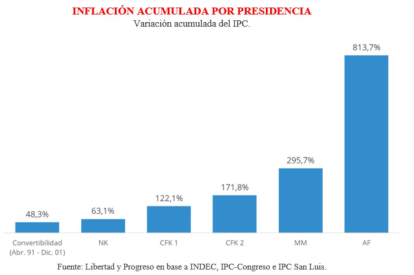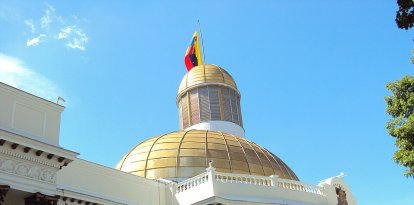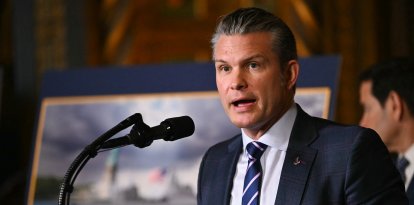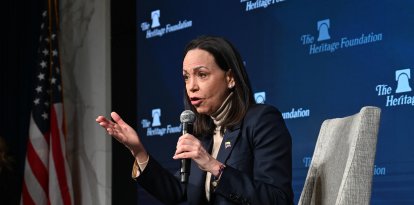The mess Argentine President Javier Milei has to deal with: Inflation at 100%, a drop in economic activity and record debt levels
A report by Fundación Libertad y Progreso detailed what Alberto Fernández and Cristina Kirchner left behind for the libertarian.

(Cordon Press)
Javier Milei became the new president of Argentina on December 10. The libertarian took office before the eyes of officials, international leaders and, of course, citizens. Milei took advantage of his first speech as president to clarify point by point the country he will govern after Alberto Fernández and Cristina Kirchner passed him the presidential baton and it's not looking good.
Among other things, the first economist to be elected president of Argentina, mentioned triple-digit inflation, more than 40% of the country in poverty and the widespread corruption in several governmental bodies.
"No government has received a worse inheritance than the one we are receiving," he said before going through this inheritance point by point. He was joined by Fundación Libertad y Progreso, which prepared a report detailing the conditions in which the previous Peronist administration handed over the government.
"Argentina has been in stagflation for 12 years"
This was expressed by Aldo Abram, executive director of the Argentine think tank, who further specified that this term refers to a stage of stagnation with increasing inflation, something Argentina has been experiencing since 2011.
Regarding price increases, Fernández handed Milei a country headed for 142% annual inflation and accumulated inflation of 813 % since Peronism took over the country.

Inflación en Argentina por presidente
In turn, they found that, from December 2019 to December 2023, the price of goods such as sugar, potatoes and oranges went up by more than 1,500 %, of course much more than wages increased.
"The persistent fiscal misconduct together with the accumulation of debt resulting from sustaining an ever larger state in the economy brought with it many difficulties in achieving economic policies that are stable. In turn, increased state intervention, with price controls and export restrictions, have generated severe distortions to the functioning of the Argentine market and further contracted production. The acceleration of inflation in recent years has affected the purchasing power of the population and created uncertainty in the economy, affecting the lack of investment and business confidence," said Eugenio Marí, chief economist of Libertad y Progreso, in an exclusive interview with Voz Media.
Stagnant economic activity
The report also documented how Argentina's economic activity, or the production of goods and services from an economy, has gone back and forth for the last 12 years.
Valentín Gutierrez, an analyst for the foundation, also emphasized that these numbers are given in the context of sustained population growth (13.1 %). In other words, "the cake" remains the same but now it must be shared among more people, which led to a decrease in per capita income.
Record debt
Finally, the report showed that the public debt of the National Treasury had risen to $419.3 million, reaching its historical maximum. During Alberto Fernández's administration, public debt increased by 33.8%.
"The increase in indebtedness has also been a historical record. In the 46 months of Alberto Fernández's administration, the gross debt increased $106 billion. More than a third of the increase, some $38,517 million (36% of the total), occurred during the administration of the current Minister Sergio Massa. If we also add the lawsuit for the nationalization of YPF, for some $16 billion, then the increase in debt reaches some $122 billion," they added.
On the other hand, when the composition of the treasury's indebtedness is analyzed, 64% is in foreign currency (81% in dollars and euros, 16% in Special Drawing Rights and the remaining 3% in other currencies) and only 36% is payable in pesos. Of that 36% in pesos, 58% have price or exchange rate adjustment clauses.

























